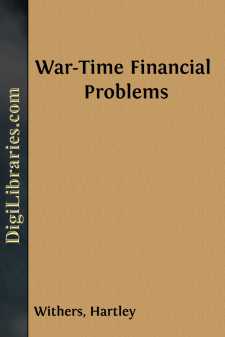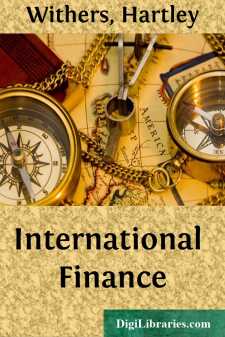Categories
- Antiques & Collectibles 13
- Architecture 36
- Art 48
- Bibles 22
- Biography & Autobiography 813
- Body, Mind & Spirit 142
- Business & Economics 28
- Children's Books 17
- Children's Fiction 14
- Computers 4
- Cooking 94
- Crafts & Hobbies 4
- Drama 346
- Education 46
- Family & Relationships 57
- Fiction 11829
- Games 19
- Gardening 17
- Health & Fitness 34
- History 1377
- House & Home 1
- Humor 147
- Juvenile Fiction 1873
- Juvenile Nonfiction 202
- Language Arts & Disciplines 88
- Law 16
- Literary Collections 686
- Literary Criticism 179
- Mathematics 13
- Medical 41
- Music 40
- Nature 179
- Non-Classifiable 1768
- Performing Arts 7
- Periodicals 1453
- Philosophy 64
- Photography 2
- Poetry 896
- Political Science 203
- Psychology 42
- Reference 154
- Religion 513
- Science 126
- Self-Help 84
- Social Science 81
- Sports & Recreation 34
- Study Aids 3
- Technology & Engineering 59
- Transportation 23
- Travel 463
- True Crime 29
Hartley Withers
Hartley Withers (1867–1950) was a British financial journalist and author known for his works on economics and banking. He served as the editor of "The Economist" from 1916 to 1921, a position that established his reputation as an expert on financial matters. Withers wrote several influential books, including "The Meaning of Money" (1909), which aimed to explain the complexities of finance to a general audience. His other notable works include "War and Lombard Street" (1915) and "The Business of Finance" (1920), which explored the financial impact of World War I.
Author's Books:
Sort by:
by:
Hartley Withers
I THE OUTLOOK FOR CAPITAL September, 1917 The Creation of Capital—The Inducement—War and Capital One of the questions that are now most keenly agitating the minds of the investing public and of financiers who cater for its wants, and also of employers and organisers of industry who are trying to see their way into after-the-war conditions, is that of the supply of capital. On this subject there are...
more...
by:
Hartley Withers
CHAPTER I CAPITAL AND ITS REWARDFinance, in the sense in which it will be used in this book, means the machinery of money dealing. That is, the machinery by which money which you and I save is put together and lent out to people who want to borrow it. Finance becomes international when our money is lent to borrowers in other countries, or when people in England, who want to start an enterprise, get...
more...



